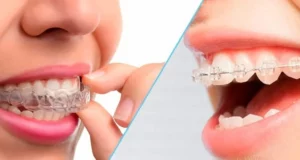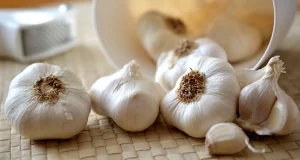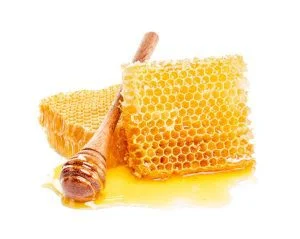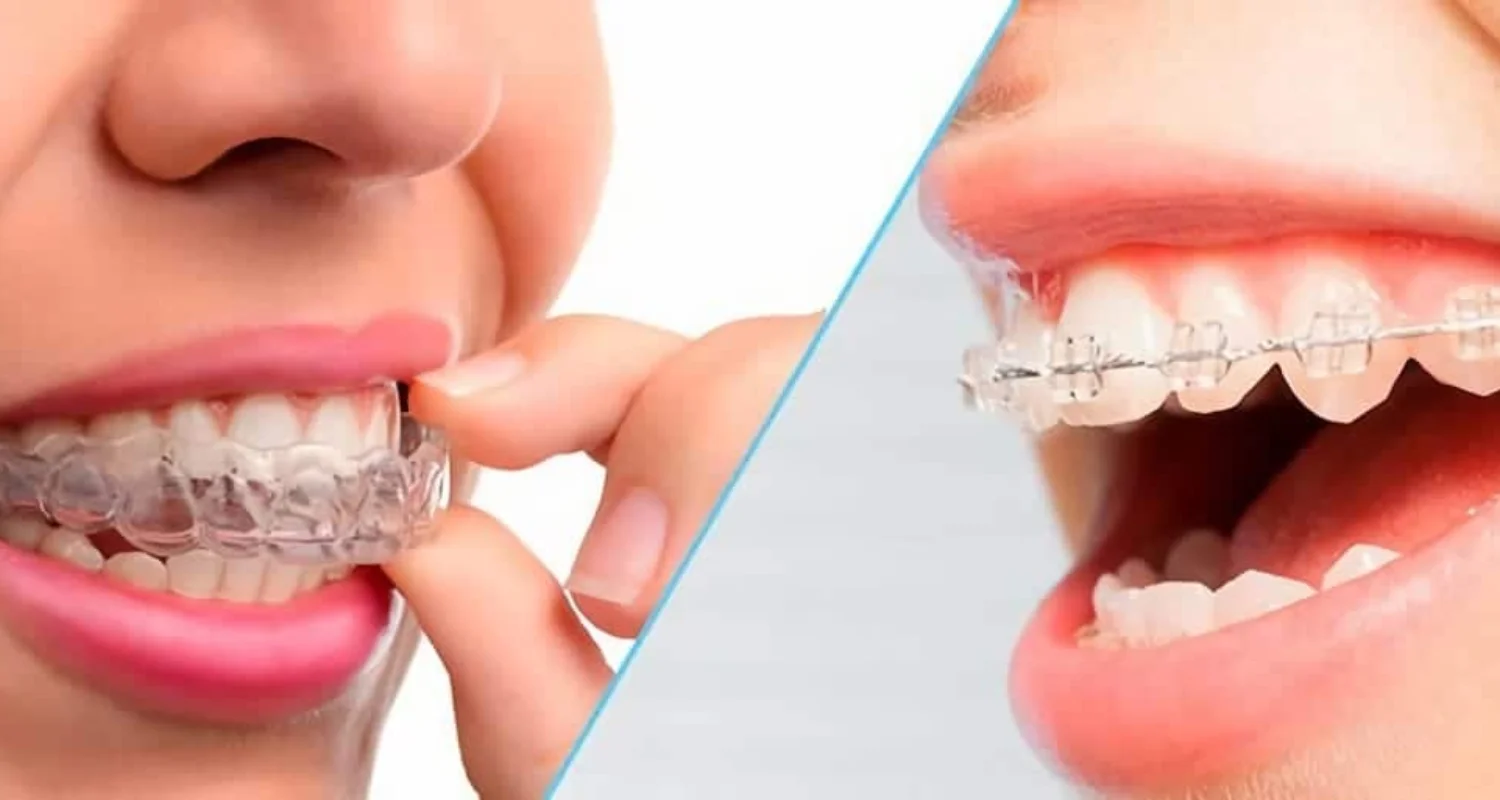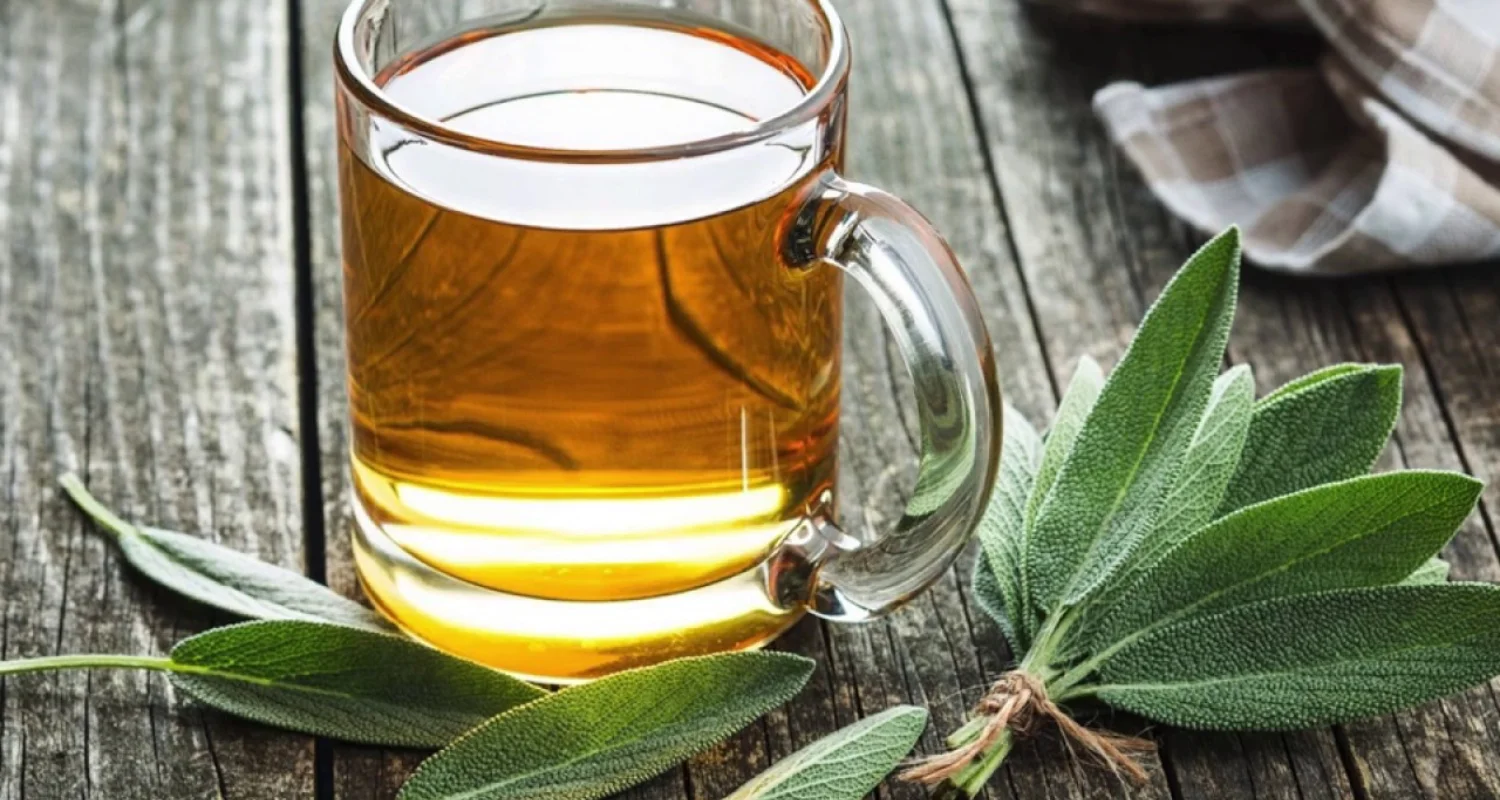Last Updated on: 2nd July 2024, 08:46 am
✓ Fact Checked 🕓
❙ Our team of writers, editors, and medical experts rigorously evaluates each article to ensure the information is accurate and exclusively cites reputable sources.
❙ We regularly assess how the content in this article aligns with current scientific literature and expert recommendations in order to provide the most up-to-date research.
Cheese is a product derived from some bovine or goat species; this dairy product is widely used in gastronomy, either as a main component or as a side dish. Its use dates back millions of years to our ancestors; in some cultures, it is positioned as essential. It is a versatile food, rich in protein, fats, and nutrients, suitable for many presentations.
Currently, cheese continues to occupy a space in our kitchens and culinary preparations, but does its consumption have any real health benefits? Even more so, Is Cheese Good for Your Teeth? In this article, we will explore the advantages and disadvantages of cheese and the overall effect it has on oral health.
Is cheese good for your teeth?
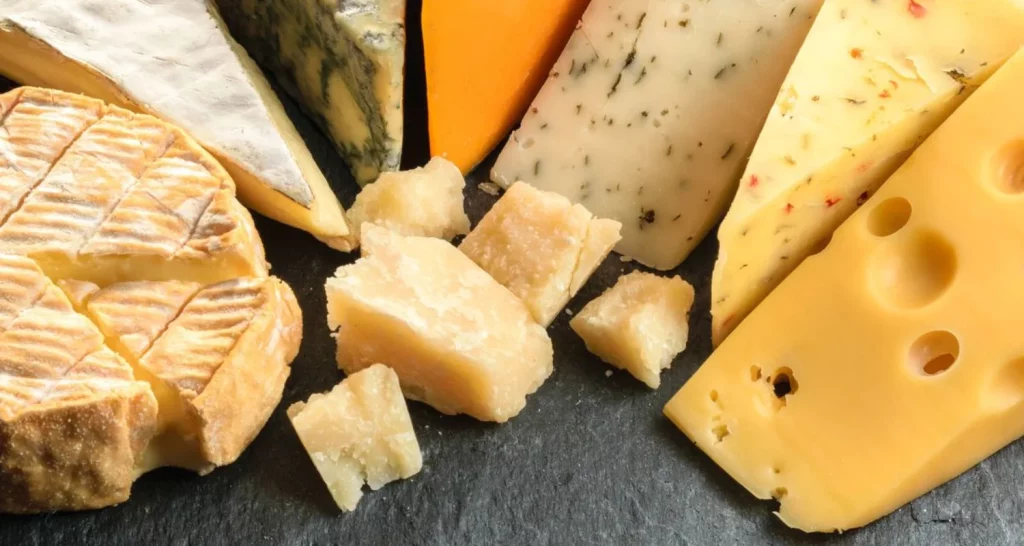
Cheese is a food rich in proteins and nutrients essential for health. Its high content of calcium, phosphates, phosphorus, casein, and proteins inherently makes it an ally in oral health care.
What are the components of cheese?
Cheese is, in essence, a solid food product of the coagulation of the proteins present in milk; in preparations, it is matured (preserved in thermally and biologically controlled environments) or fermented (the growth of prebiotic bacterial species is favored and/or probiotics).
Can we use cheese to prevent cavities? Is Cheese Good for Your Teeth?
Yes, cheese is an ally in the fight against cavities. Let us remember that cavities entail a loss of minerals in the teeth, generating holes on their surface as a result of the acids produced by bacteria. Cheese is a food with an alkaline pH; therefore, it prevents demineralization of the teeth, due to the presence of casein, phosphorus, and calcium, substances that change the composition and acidity of saliva.
Is cheese good for your teeth before bed?
is cheese good for your teeth before bed? As mentioned, cheese has remineralizing properties that prevent cavities and sometimes stop their progression. Some studies, such as the one published by Herod EL in 1991, and by Somaraj V and collaborators In 2018, have highlighted the anti-cariogenic capacity of milk and its derivatives. However, brushing and flossing your teeth before bed is essential to protect your teeth from tooth decay.
Is Cheese Good for Your Teeth after lunch?
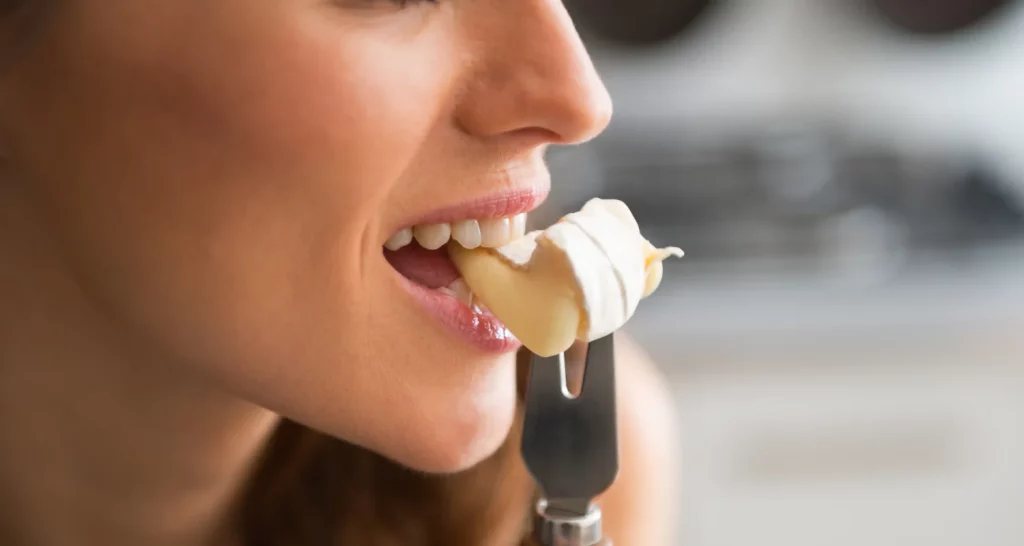
Due to its semi-solid or solid texture, and its strong flavor, smell, and composition, the consumption of cheese after each meal stimulates the production of saliva, favoring the autolysis process ( how the mouth cleans itself). regulation of PH and therefore, dental remineralization.
Is Cheese Good for Your Teeth and What is the best cheese for oral health?
Although the consumption of cheese in any of its presentations is beneficial for oral health, some experts suggest considering the following characteristics:
1. Low salt content
2. Semi-fat or low-fat
3. Rigid or semi-rigid texture
Therefore, the healthiest options recommended by experts are fresh cheese (also called peasant), Cheddar cheese, and semi-fat mozzarella.
Matured cheeses such as some Swiss varieties, Grana Padano, Gouda, and blue cheeses have the additional advantage of probiotics (microorganisms that promote general and oral health), so, Is Cheese Good for Your Teeth? Yes, becouse their occasional consumption should provide medium and long-term benefits in the oral and intestinal microbiota (also called flora).
Is Cheese Good for Your Teeth and its benefits?
Cheese provides several nutrients necessary for the maintenance and correct functioning of the body’s tissues and organs, among which we highlight Vitamin A, B2, D, and E – also found in milk. These nutrients, added to correct oral hygiene, promote healthy gums.
Is Cheese Good for Your Teeth
Advantages
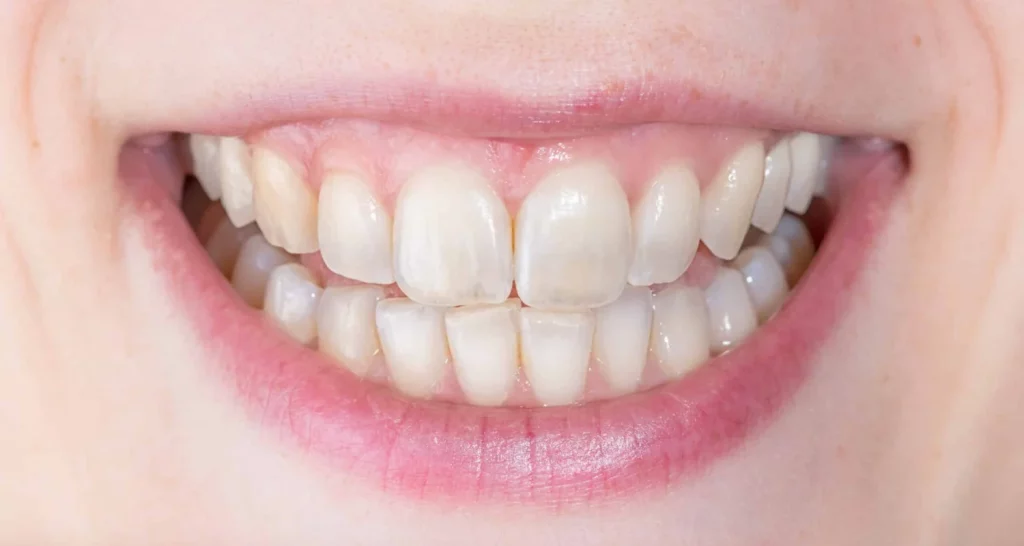
Next, we will explore in detail the main advantages of consuming cheese for oral health:
1. Dental remineralization
Studies have highlighted the remineralizing role of dairy products, especially cheese, which contains a high concentration of casein. Casein is a protein that promotes dental remineralization. Currently, there are products on the market that use this macromolecule as an active ingredient for the prevention of cavities, the treatment of dental demineralization, and even tooth sensitivity.
2. Contribution of proteins, calcium, and phosphorus
Cheese can be considered a superfood since its composition contains various vitamins, minerals, and proteins that are beneficial for oral and general health.
3. Presence of probiotics
In fermented and/or matured cheeses, the presence of beneficial microorganisms for oral and general health is valued. These probiotics play a role in the microbiota, tipping the balance between good and bad microorganisms, Therefore, they contribute to better oral and general health. Varieties of cheese should be consumed in moderation since excess can have harmful effects.
Disadvantages of cheese consumption
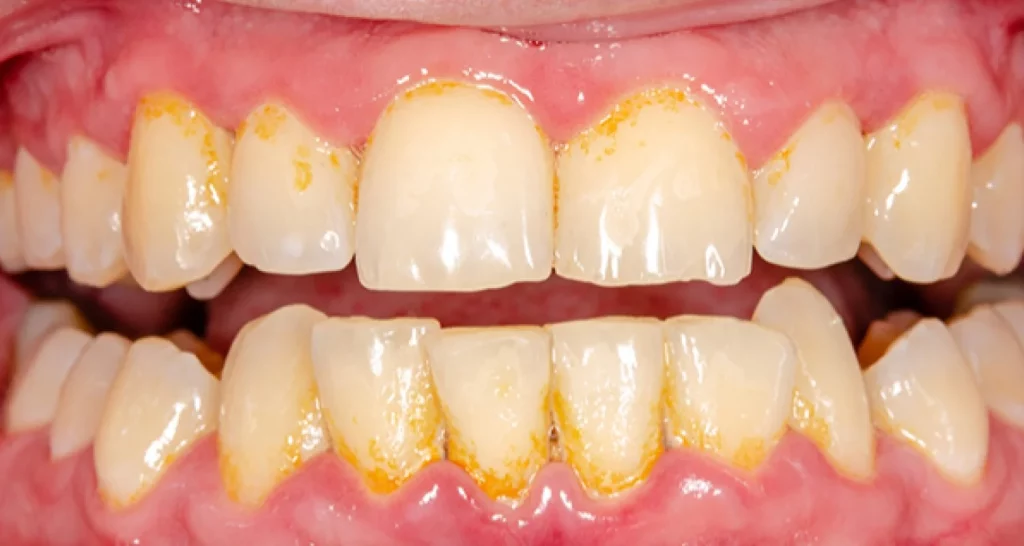
Now, although cheese has many advantages, it is important to consider some disadvantages associated with its consumption:
1. Appearance of dental calculus
Frequent consumption of dairy foods, coupled with poor oral hygiene, is associated with the appearance of dental calculus; in alkaline environments, the biofilm is easy to mineralize and adhere to tooth surfaces. It is suggested to visit your dentist periodically to prevent the appearance of dental calculus.
2. High-fat content
Some varieties of cheese are high in fat, a condition that can be harmful and trigger an increase in cholesterol and triglycerides. A periodic check-up with your doctor is suggested to evaluate your initial values and possible restrictions on consumption.
3. High salt content
Some varieties of cheese may contain high sodium content, so frequent consumption could trigger high blood pressure problems. In patients with kidney problems, salt consumption should be moderated, as it promotes the formation of kidney stones.
Conclusion
Is Cheese Good for Your Teeth? Cheese is a food rich in proteins, minerals, and nutrients that should be included in the diet since the benefits for oral and general health are notable. Regular consumption of cheese can be an advantage for the prevention and treatment of dental caries. However, it is important to visit the dentist periodically, maintain good oral hygiene, and eat a balanced diet.
Frequently Asked Questions
Is Cheese Good for Your Teeth?
Indeed, it is beneficial. Cheese, a dairy product, stands out as a primary option to improve oral health. This food is especially suitable for dental patients concerned about their health, as it is rich in casein, a protein that plays a crucial role in fortifying tooth enamel. Additionally, cheese acts as a barrier, preventing acidic foods from damaging teeth.
Is cheese good for your teeth before bed?
It is advisable to wait 30 minutes after eating to brush your teeth. Opting for hard cheeses and nuts without added sugar as a complement to a meal or dessert is a good practice. Unsweetened juices and milk create an acidic environment in the mouth for up to 30 minutes, while cookies and chocolates can prolong this acidic environment for up to 120 minutes.
Is cheese an ally against cavities?
Numerous research suggests that including cheese as the last ingredient in a meal helps reduce the risk of cavities. There are different theories about how cheese can stop the loss of minerals in tooth enamel. The act of chewing cheese increases the production of saliva, whose alkaline property neutralizes the acids produced by bacterial plaque.
Can cheese help whiten teeth?
Dairy products, including cheese, yogurt, and milk, are rich in lactic acid and calcium. This mineral not only strengthens and hardens tooth enamel, but it also helps whiten teeth. Additionally, chewing cheese encourages saliva generation, helping to remove food particles that can cause stains on your teeth.
Share:
References
1. The Best and Worst Foods for Your Teeth – Health Encyclopedia – University of Rochester Medical Center.. https://www.urmc.rochester.edu/encyclopedia/content.aspx?contenttypeid=1&contentid=4062
2. Shkembi, B., & Huppertz, T. (2023). Impact of Dairy Products and Plant-Based Alternatives on Dental Health: Food Matrix Effects. Nutrients, 15(6), 1469. https://doi.org/10.3390/nu15061469
3. Somaraj, V., Shenoy, R. P., Panchmal, G. S., Jodalli, P., Sonde, L., & Nagaraj, K. (2018). Effect of Paneer and Cheese Consumption on Salivary Acidogenicity and Calcium Concentration: A Comparative Study. Oral Health & Preventive Dentistry, 16(2), 169-174. https://doi.org/10.3290/j.ohpd.a40308
4. Çağlar, E., Kargül, B., & Tanboğa, İ. (2005). Bacteriotherapy and probiotics’ role on oral health. Oral Diseases, 11(3), 131-137. https://doi.org/10.1111/j.1601-0825.2005.01109.x
5. Ibrahim, F., Ruvio, S., Granlund, L., Salminen, S., Viitanen, M., & Ouwehand, A. C. (2010). Probiotics and immunosenescence: cheese as a carrier. Fems Immunology And Medical Microbiology, 59(1), 53-59. https://doi.org/10.1111/j.1574-695x.2010.00658.x
6. Irlinger, F., Layec, S., Hélinck, S., & Dugat-Bony, É. (2014). Cheese rind microbial communities: diversity, composition and origin. FEMS Microbiology Letters, 362(2), 1-11. https://doi.org/10.1093/femsle/fnu015






